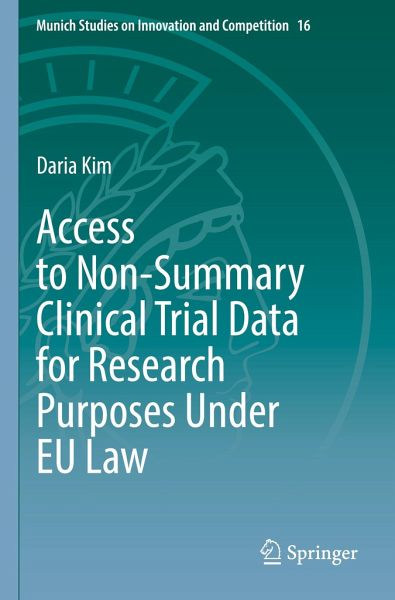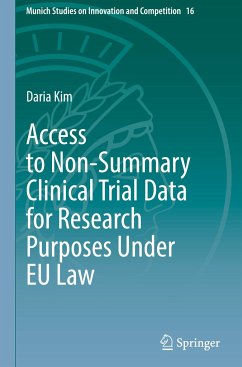
Access to Non-Summary Clinical Trial Data for Research Purposes Under EU Law
Versandkostenfrei!
Versandfertig in 6-10 Tagen
98,99 €
inkl. MwSt.
Weitere Ausgaben:

PAYBACK Punkte
49 °P sammeln!
This book draws a unique perspective on the regulation of access to clinical trial data as a case on research and knowledge externalities. Notwithstanding numerous potential benefits for medical research and public health, many jurisdictions have struggled to ensure access to clinical trial data, even at the level of the trial results. Pro-access policy initiatives have been strongly opposed by research-based drug companies arguing that mandatory data disclosure impedes their innovation incentives. Conventionally, access to test data has been approached from the perspective of transparency and...
This book draws a unique perspective on the regulation of access to clinical trial data as a case on research and knowledge externalities. Notwithstanding numerous potential benefits for medical research and public health, many jurisdictions have struggled to ensure access to clinical trial data, even at the level of the trial results. Pro-access policy initiatives have been strongly opposed by research-based drug companies arguing that mandatory data disclosure impedes their innovation incentives. Conventionally, access to test data has been approached from the perspective of transparency and research ethics. The book offers a complementary view and considers access to individual patient-level trial data for exploratory analysis as a matter of research and innovation policy. Such approach appears to be especially relevant in the data-driven economy where digital data constitutes a valuable economic resource. The study seeks to define how the rules of access to clinical trialdata should be designed to reconcile the policy objectives of leveraging the research potential of data through secondary analysis, on the one hand, and protecting economic incentives of research-based drug companies, on the other hand. Overall, it is argued that the mainstream innovation-based justification for exclusive control over the outcomes of research and development can hardly rationalise trial sponsors' control over primary data from trials. Instead, access to such data and its robust analysis should be prioritised.












